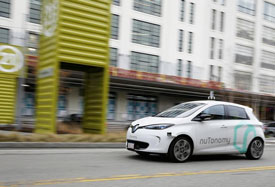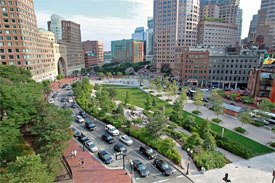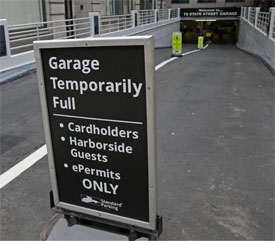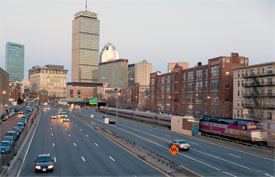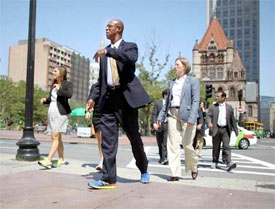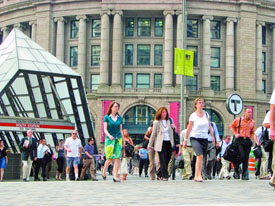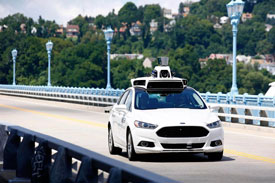
Credit: Boston Herlad
Self-driving cars, who’s technology in part is being created and tested in Boston, will offer the nearly 2 million individuals with disabilities new employment opportunities.
From the Boston Herald:
In a study released by the Boston-based Ruderman Family Foundation last week, researchers found self-driving cars would dramatically improve the lives of disabled residents by making it easier and cheaper for them to travel — especially to and from a job.
“Approximately 2 million individuals with disabilities would have new employment opportunities,” the study said. “New transportation technologies have the potential to help those with disabilities enjoy the activities that those without disabilities take for granted.”

